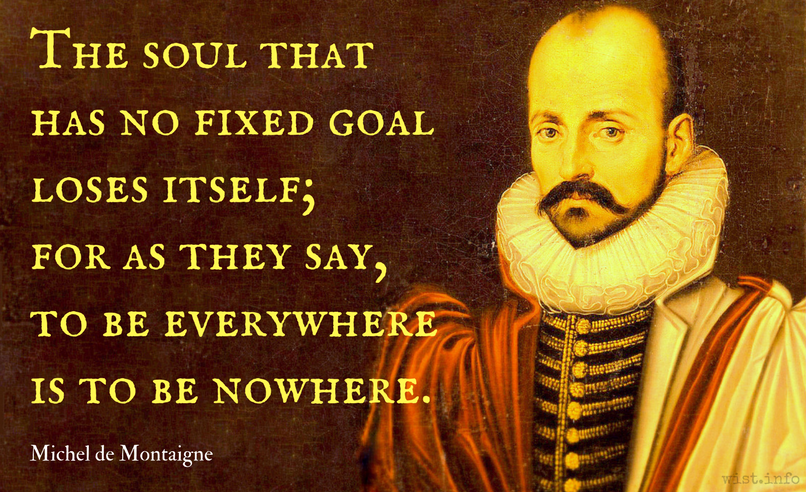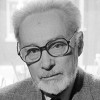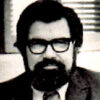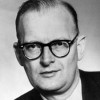Make love your aim, not biblical inerrancy, nor purity nor obedience to holiness codes. Make love your aim, for
“Though I speak with the tongues of men and of angels” — musicians, poets, preachers, you are being addressed.
“and though I … understand all mysteries, and all knowledge” — professors, your turn,
“and though I bestow all my goods to feed the poor” — radicals take note;
“and though I give my body to be burned” — the very stuff of heroism;
“and have not charity, it profiteth me nothing.” (1 Cor. 13:1-3 KJV).I doubt if any other scriptures of the world there is a more radical statement of ethics. If we fail in love, we fail in all things else.
William Sloane Coffin, Jr. (1924-2006) American minister, social activist
Credo, “Faith, Hope, Love” (2004)
(Source)
Quotations about:
aim
Note not all quotations have been tagged, so Search may find additional quotes on this topic.
A system must be managed. It will not manage itself. Left to themselves in the Western world, components become selfish, competitive, independent profit centres, and thus destroy the system. The secret is cooperation between components toward the aim of the organization. We can not afford the destructive effect of competition.
W. Edwards Deming (1900-1993) American management consultant, educator
The New Economics for Industry, Government, Education, ch. 3 “Introduction to a System” (1993)
(Source)
… a noble aim,
Faithfully kept, is as a noble deed,
In whose pure sight all virtue doth succeed.William Wordsworth (1770-1850) English poet
“Brave Schill! By Death Delivered, Take Thy Flight” (1809; pub. 1815)
(Source)
Sometimes misquoted "is a noble deed".
The soul that has no fixed goal loses itself; for as they say, to be everywhere is to be nowhere.
[L’âme qui n’a point de but établi, elle se perd: car comme on dit, c;est n’ètre en aucun lieu que d’être partout.]
Michel de Montaigne (1533-1592) French essayist
Essays, Book 1, ch. 8 “Of Idleness” (1580-88) [tr. Frame (1943)]
(Source)
Alt. trans.: "The soul that has no established aim loses itself, for, as it is said, 'He who lives everywhere, lives nowhere.'" [tr. Cotton (1877)]
Alt. trans.: "When the soul is without a definite aim, she gets lost; for, as they say, if you are everywhere you are nowhere." [tr. Screech (1987)]
The proverb referenced is Martial.
An aim in life is the only fortune worth the finding; and it is not to be found in foreign lands, but in the heart itself.
Robert Louis Stevenson (1850-1894) Scottish essayist, novelist, poet
The Amateur Emigrant, ch. 4 “Steerage Types” (1895)
(Source)
Now if of the things we do there is an end which we wish for its own sake […] then clearly this end would be good and the highest good. Will not knowledge of it, then, have a great influence on our way of life, and would we not as a consequence be more likely to attain the desired end, like archers who have a mark to aim at? If so, then we should try to grasp, in outline at least, what that end is and to which of the sciences or faculties it belongs.
[εἰ δή τι τέλος ἐστὶ τῶν πρακτῶν ὃ δι᾽ αὑτὸ βουλόμεθα, τἆλλα δὲ διὰ τοῦτο, καὶ μὴ πάντα δι᾽ ἕτερον αἱρούμεθα (πρόεισι γὰρ οὕτω γ᾽ εἰς ἄπειρον, ὥστ᾽ εἶναι κενὴν καὶ ματαίαν τὴν ὄρεξιν), δῆλον ὡς τοῦτ᾽ ἂν εἴη τἀγαθὸν καὶ τὸ ἄριστον. ἆρ᾽ οὖν καὶ πρὸς τὸν βίον ἡ γνῶσις αὐτοῦ μεγάλην ἔχει ῥοπήν, καὶ καθάπερ τοξόται σκοπὸν ἔχοντες μᾶλλον ἂν τυγχάνοιμεν τοῦ δέοντος; εἰ δ᾽ οὕτω, πειρατέον τύπῳ γε περιλαβεῖν αὐτὸ τί ποτ᾽ ἐστὶ καὶ τίνος τῶν ἐπιστημῶν ἢ δυνάμεων.]
Aristotle (384-322 BC) Greek philosopher
Nicomachean Ethics [Ἠθικὰ Νικομάχεια], Book 1, ch. 2 (1.2, 1094a.18ff) (c. 325 BC) [tr. Apostle (1975)]
(Source)
(Source (Greek)). Alternate translations:
Since then of all things which may be done there is some one End which we desire for its own sake, [...] this plainly must be the Chief Good, i.e. the best thing of all. Surely then, even with reference to actual life and conduct, the knowledge of it must have great weight; and like archers, with a mark in view, we shall be more likely to hit upon what is right: and if so, we ought to try to describe, in outline at least, what it is and of which of the sciences and faculties it is the End.
[tr. Chase (1847)]
If then there be some one end of all that we do, for which we wish for its own sake [...] it is evident that this end will be the chief and supreme good. Surely then a scientific knowledge of it will have a critical influence upon our lives, and will make us, like bowmen who have a mark at which to aim, all the more likely to hit upon that which is good. And if this be so, we must endeavour to describe it at least in outline, and to say of what science or of what art it is the province.
[tr. Williams (1869)]
If it is true that in the sphere of action there is an end which we wish for its own sake [...] it is clear this will be the good or the supreme good. Does it not follow then that the knowledge of this supreme good is of great importance for the conduct of life, and that, if we know it, we shall be like archers who have a mark at which to aim, we shall have a better chance of attaining what we want? But, if this is the case, we must endeavor to comprehend, at least in outline, its nature, and the science or faculty to which it belongs.
[tr. Welldon (1892), ch. 1]
If then in what we do there be some end which we wish for on its own account, [...] this evidently will be the good or the best of all things. And surely from a practical point of view it much concerns us to know this good; for then, like archers shooting at a definite mark, we shall be more likely to attain what we want. If this be so, we must try to indicate roughly what it is, and first of all to which of the arts or sciences it belongs.
[tr. Peters (1893)]
If, then, there is some end of the things we do, which we desire for its own sake [...] clearly this must be the good and the chief good. Will not the knowledge of it, then, have a great influence on life? Shall we not, like archers who have a mark to aim at, be more likely to hit upon what is right? If so, we must try, in outline at least, to determine what it is, and of which of the sciences or capacities it is the object.
[tr. Ross (1908)]
If therefore among the ends at which our actions aim there be one which we will for its own sake [...] it is clear that this one ultimate End must be the Good, and indeed the Supreme Good. Will not then a knowledge of this Supreme Good be also of great practical importance for the conduct of life? Will it not better enable us to attain our proper object, like archers having a target to aim at? If this be so, we ought to make an attempt to determine at all events in outline what exactly this Supreme Good is, and of which of the sciences or faculties it is the object.
[tr. Rackham (1934)]
If, then, there is some end of things doable in action that we wish for because of itself, [...] it is clear that this will be the good -- that is, the best good. Hence regarding our life as well, won't knowing the good have great influence and -- like archers with a target -- won't we be better able to hit what we should? If so, we should try to grasp in outline, at least, what the good is and to which of the sciences or capacities it properly belongs.
[tr. Reeve (1948)]
So if what is done has some end that we want for its own sake [...] then clearly this will be the good, indeed the chief good. surely, then, knowledge of the good must be very important for our lives? And if, like archers, we have a target, are we not more likely to hit the right mark? If so, we must try at least roughly to comprehend what it is and which science of faculty is concerned with it.
[tr. Crisp (2000)]
If, therefore, there is some end of our actions that we wish for on account of itself, [...] clearly this would be the good, that is, the best. And with a view to our life, then, is not the knowledge of this good of greater weight, and would we not, like archers in possession of a target, better hit on what is needed? If this is so, then one must try to grasp, in outline at least, whatever it is and to which of the sciences or capacities it belongs.
[tr. Bartlett/Collins (2011)]
You got to be careful if you don’t know where you’re going, because you might not get there.
Doubtless he had an ideal, but it was the ideal of a practical statesman, — to aim at the best, and to take the next best, if he is lucky enough to get even that.
James Russell Lowell (1819-1891) American diplomat, essayist, poet
“Abraham Lincoln, 1864-1865” (1869)
(Source)
Printed in The North American Review, #222 (Jan 1869) under the title "Before and After." Sometimes given as "The idea of a practical statesman is to aim ...."
My mother drew a distinction between achievement and success. She said that achievement is the knowledge that you have studied and worked hard and done the best that is in you. Success is being praised by others, and that’s nice too, but not as important or satisfying. Always aim for achievement and forget about the success.














